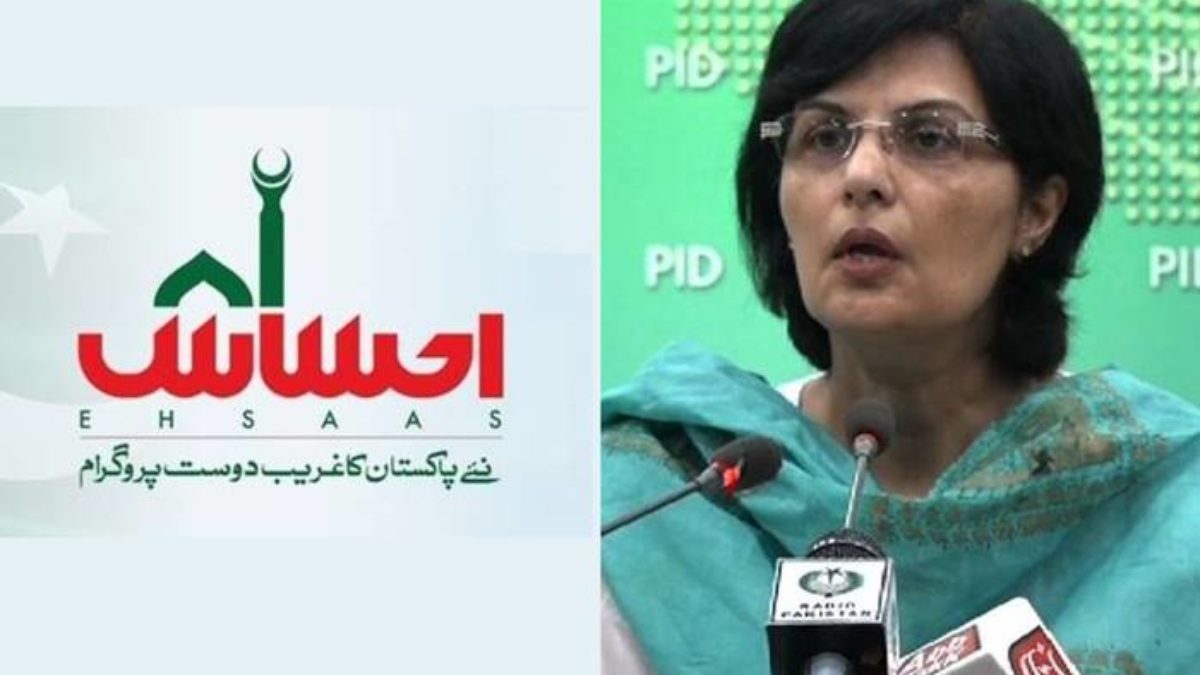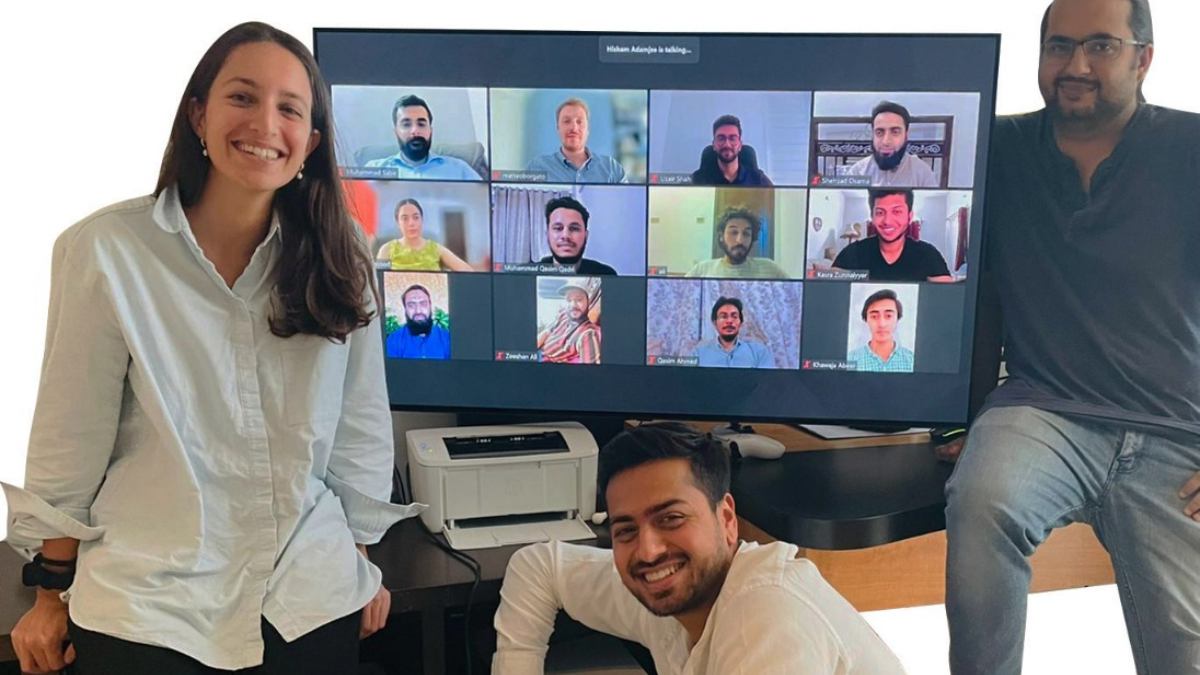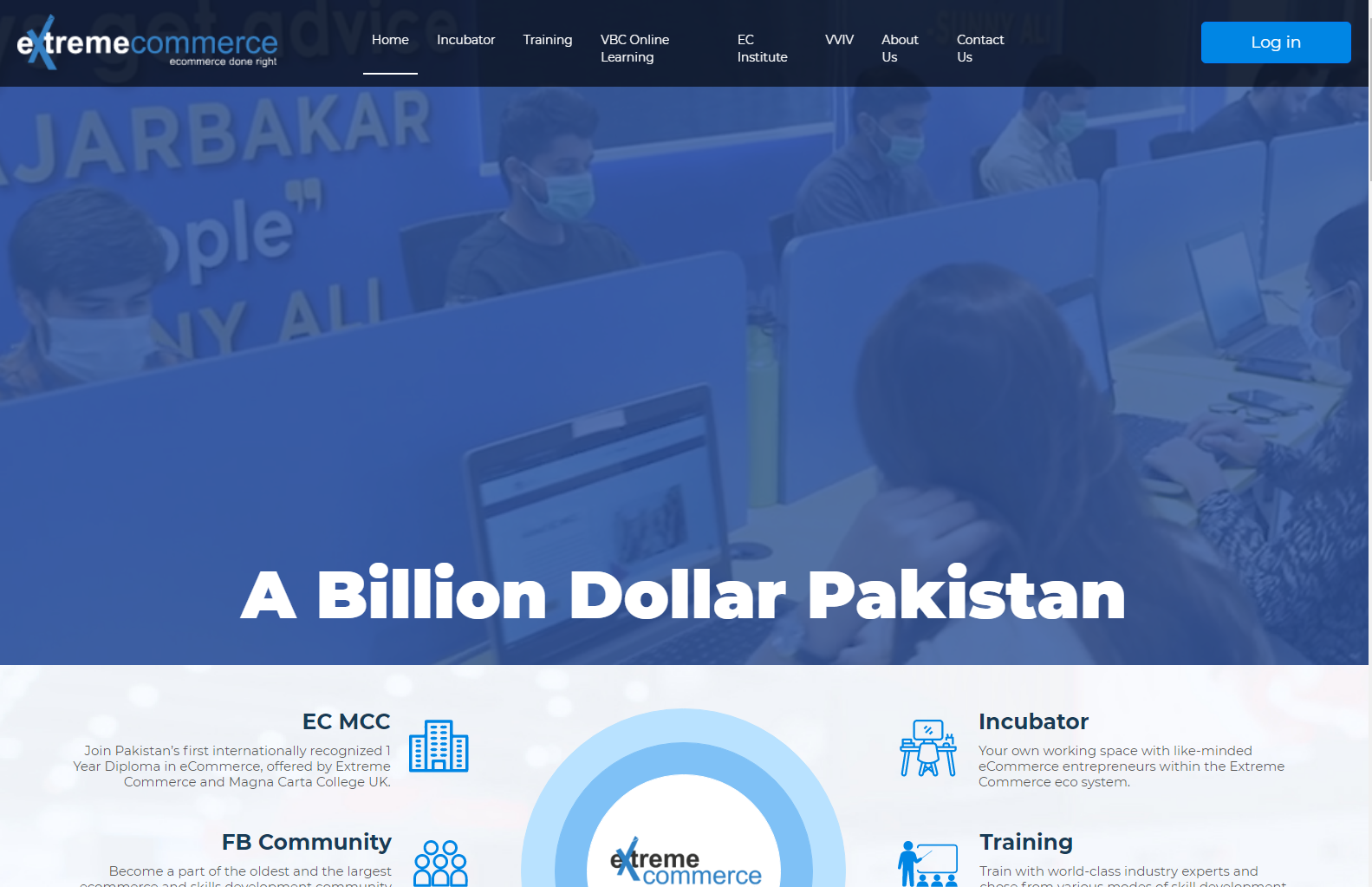Entrepreneurs
The Best Startups of Pakistan in 2018 to Leave Mark in 2019
Startup culture in Pakistan has grown exponentially in the past few years, but questions still remain about whether startups have what it takes to survive, mature and scale.
Finding seed funding is where many startups struggle. However, things may be set to change on the venture capital front as big names including Bakery, Golden Gate Ventures, Wadi Accelerator, and Fatima Ventures are showing interest in investing in the Pakistani market.
Here is a shortlist of startups that have already made their presence felt in 2018 expected to go bigger in 2019.
Table of Contents
Bykea
Founded: December 2016

Bykea is a local ride hailing service which uses bikes as the primary mode of transportation. Apart from getting a ride, the app allows customers to avail multiple other services such as bill payment, and parcel collection or delivery.
Just like competitors Careem and Uber, Bykea allows its users to track rides and rate them based on the quality of service.
Why are they on this list?
Given the low maintenance and fuel consumption of a bikes, Bykea is able to offer economical rates to its users, compared to other car hailing apps.
Moreover, the app is also available in Urdu making it easier for the masses to understand and use it.
With additional services of collecting and delivering parcels, Bykea is catering to a huge local market and has already shown potential to make it big in the months to come.
CertCars
Founded: February 2017

CertCars makes buying and selling cars easier, eliminating middlemen and connecting buyers directly with sellers. All cars listed on the website get inspected by trained technicians, and they also carry out a detailed photo shoot.
Their service is currently free until the end of 2017, but they will be charging an undisclosed amount from 2018.
Why are they on this list?
A young startup fresh out of tech incubator The Nest I/O, they recently secured investment of Rs5 million from ecommerce portal homeshopping.pk.
MicroPower Labs
Founded: 2015

MicroPower Labs is a technology innovation startup that develops tech gadgets, one of their products being Flash Pack, which claims to be the world’s fastest charging power bank with charging time of 15 minutes.
The startup also aims to launch Cooly in 2018, which they say is the world’s first solar powered wearable cooling device.
Why are they on this list?
With a customer base spread across 35 countries, MicroPower Labs has been able to secure funding from international investors in a very short period, with $100,000 in sales in 2017. The most recent push for the startup came in September 2017 when they secured an equity free grant of AUD $100,000 from the Government of Queensland Australia.
Car Chabi
Founded: December 2015

Car Chabi is a digital car key app that allows users to lock, unlock, start, and secure their car through smartphones. They have introduced many other interesting features for this digital car key as well, such as engine kill, automatically saving parking locations, and pre-heating or cooling the car.
Why are they on this list?
Within one year of operation, the startup was able to generate a revenue of over $30,000 and also secured seed funding worth $150,000 from Treet Corporation Limited in 2017. The first-of-its-kind local app has gained interest of many car owners for both security and convenience.
Patari
Founded: September 2014

Patari claims to be Pakistan’s largest audio streaming platform that not only produces original music, but also the first Pakistani digital media platform that pays royalties to its artists. Users can stream music on the Patari website as well as on its mobile app.
Why are they on this list?
The startup raised $200,000 in seed funding in December 2016 from Sarmayacar, and has since launched many successful projects. Patari’s userbase has been consistently increasing since its launch, and according to Humayun Haroon, co-founder of Patari, they are currently attracting over a million visits and over four million streams each month.
UrduBit
Founded: August 2016

UrduBit is Pakistan’s first Bitcoin trading platform focused on safe transactions and maintaining a level of professionalism that doesn’t exist on the cryptocurrency front locally. The site functions by allowing users to trade directly with each other via the platform, charging a 0.75% trade fee.
Why are they on this list?
Urdubit continues to gain traction as awareness regarding cryptocurrency has increased in the local market. Bitcoin has gained the attention of people around the world who are now looking to invest in this largely unregulated digital currency, and Urdubit shows a lot of potential as a local platform for bitcoin trade in Pakistan.
Courtesy Dawn.com
Discover more from The Monitor
Subscribe to get the latest posts sent to your email.
Economy
Sania Approves Cognitive API Architecture For Ehsaas’ One Window Socioeconomic Registry

Islamabad: The Cognitive API architecture for Ehsaas’ National Socio-Economic Registry 2021 is one of the six main pillars of ‘One Window Ehsaas’. With the survey, which is building the registry currently 90.5% complete nationwide, Ehsaas is firming up its plans to open data sharing and data access services for all executing agencies under Poverty Alleviation and Social Safety Division (PASSD).
Data sharing will be done through the Cognitive API Architecture approach. The deployment of Ehsaas API architecture for data sharing will allow executing agencies to access data from the unified registry in real-time to validate beneficiary information. This will empower them to ascertain eligibility of potential beneficiaries. The benefits which each family and individual is receiving from each organization will be visible to all agencies across all Ehsaas programs.
There will be two-way data sharing; agencies with whom data will be shared will also be required to update the registry with their own information, hence the registry will become more robust over time. A final presentation was made to Dr. Sania Nishtar who closely oversaw this process. She praised the technical team working on Ehsaas Cognitive API Architecture approach and congratulated them. Later, this service will be extended to provinces and other government agencies implementing Ehsaas programs as well.
The API architecture for data sharing will facilitate adoption of the Ehsaas One Window targeting Policy. The objective of this policy is to make targeting predictable, evidence based, transparent and effective in the Ehsaas ecosystem. Under the same architecture, the Utility Stores Corporation has also been linked with the Ehsaas database, which will underpin execution of a commodity subsidies program. This approach is being adopted for the first time and will usher in transparency. Previously, there was no way of one government agency knowing what support an individual or a family was getting from another government agency.
Some families with connections and influence were getting multiple benefits and other more deserving ones were getting none. Now, with the data integration, Ehsaas agencies will be able to see what benefits an individual or the households is getting. But more importantly, it will also reflect their entitlement in terms of various Ehsaas programmes and initiatives, because the data sharing is pegged with the Ehsaas One Window targeting Policy.
The integrated registry and the cognitive API Architecture for the registry is one pillar of the One Window Ehsaas, which will be launched this week. It has six main components: one-stop-shop centers; an integrated digital interface facing the office; a digital information and services platform; a mobile app; an integrated database comprising of cognitive API architecture; and the standardized beneficiary targeting policy.
Discover more from The Monitor
Subscribe to get the latest posts sent to your email.
Digital
Karachi-based digital bookkeeping startup, CreditBook raises $1.5 million in seed funding

The Karachi-based digital bookkeeping startup CreditBook, which is trying to ensure that tracking of transactions goes digital, has announced that it has raised US$1.5 million in seed funding from international and local investors.
Key investors included Pakistan’s BitRate Venture Capital, VentureSouq from the United Arab Emirates, US-based Better Tomorrow Ventures, Ratio Ventures, Quiet Capital, Toy Ventures, and i2i Ventures.
Established in June 2020 by Hasib Malik, Iman Jamall, and Hisham Adamjee, CreditBook strives to help microentrepreneurs digitalize and track their transactions.
CreditBook aims to utilize the funding to scale its user base and diversify its product offerings. As indicated by the startup, its registered client base grew 5x in the last six months to reach 500,000.
“Before the launch in June 2020, we had planned to use a mix of digital marketing and offline acquisition. But with lockdown restrictions, we pivoted to a purely digital strategy. We were surprised when we saw thousands of users come onto the platform in the first month with less than $1,000 in total spend,” Malik told Tech in Asia. Via TechinAsia
Discover more from The Monitor
Subscribe to get the latest posts sent to your email.
Digital
Pakistan Moves Closer to Train One Million Youth with Digital Skills


Discover more from The Monitor
Subscribe to get the latest posts sent to your email.
-

 Featured5 years ago
Featured5 years agoThe Right-Wing Politics in United States & The Capitol Hill Mayhem
-

 News4 years ago
News4 years agoPrioritizing health & education most effective way to improve socio-economic status: President
-

 China5 years ago
China5 years agoCoronavirus Pandemic and Global Response
-

 Canada5 years ago
Canada5 years agoSocio-Economic Implications of Canadian Border Closure With U.S
-

 Democracy5 years ago
Democracy5 years agoMissing You! SPSC
-

 Conflict5 years ago
Conflict5 years agoKashmir Lockdown, UNGA & Thereafter
-

 Democracy5 years ago
Democracy5 years agoPresident Dr Arif Alvi Confers Civil Awards on Independence Day
-

 Digital5 years ago
Digital5 years agoPakistan Moves Closer to Train One Million Youth with Digital Skills



















